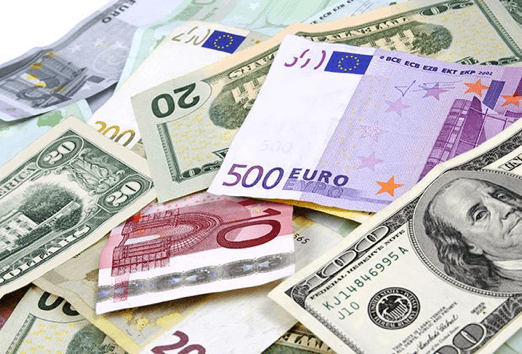
There are a lot of different things that might come to mind when you hear the term “offshore banking”. Maybe you think of a bank on some island, far away in the tropics. Maybe you think it’s something only offered to the very rich, and totally unobtainable to average citizen or smaller company. Maybe the news has led you to believe that it’s illegal.
The truth is that offshore banks are a completely legal option that can help protect the money you have as part of your asset protection plan. This can help to let you breathe a little easier when it comes to your finances. As for the rest of the myths, this article can address those as it answers the nine most frequently asked questions about offshore banking.

What Is an Offshore Bank?
When considering whether an offshore bank is right for you, the first step is to get an offshore banking definition. An offshore bank is a bank that is located outside of the country in which most of its account holders reside. While the term “offshore” brings to mind some distant, tropical island – and indeed you can find many offshore banks on islands – landlocked countries like Switzerland or Germany can also be the home of an offshore bank.
There can be a variety of financial and legal advantages to using a bank in an offshore jurisdiction. An offshore jurisdiction just refers to a geographical area away from your home shore, and is often synonymous with an offshore financial center.

What is an Offshore Account?
An account held in an offshore bank is called an offshore bank account. These accounts are similar in many ways to local bank accounts, with a few notable exceptions. People looking to open an offshore bank account are usually seeking favorable banking conditions with low tax jurisdictions. Often, the qualifications for opening an offshore account are similar to those in your home country, but they can provide different benefits.

What are the Best Offshore Banks?
You’ve probably heard of Swiss bank accounts, and that isn’t surprising. Swiss banks hold about 35% of the world’s private and institutional funds. They are not the only source for an offshore bank account, however. The the best one for you depends on who you are, what you’re looking for, and which bank offers the best financial options for you.
A complete offshore banks list would be difficult to compile. A good place to start is with Global Finance’s yearly list of safe banks. The most recent report lists such countries as Germany, Switzerland, Luxembourg, France, the Netherlands and Canada among the top sources of trusted banks. As financial professionals, we can help you find which location will be the best one for you.

What Can an Offshore Bank Account Do for Me?
One of the main reasons that people use an offshore bank is to diversify their political risk and protect their liquid assets. Political risk are risks that are tied to future changes in governmental policies, taxes, and events. A good source for finding out a market’s political risk is the Financial Times and London Stock Exchange (FTSE). The FTSE ranks different companies to give an idea of what strong, developed markets are. Some of these markets, as of a 2008 report, include Australia, Denmark, Finland, New Zealand, Portugal, Singapore, and the United Kingdom.
Having an offshore account is an extra measure of protection and can hide your money from future lawsuits. It can allow you to have a backup when problems arise in the future. For example, if you get sued in a civil court, your offshore accounts won’t be at risk of getting seized.
Having the option of different currencies can protect your purchasing power and internalize some of your savings. The performance of currency often changes, and having investments in different currencies can offset losses to your overall portfolio.
Another appeal to an offshore bank is that they often provide higher interest rates on savings than your home institutions. Often, this is a large reason people choose offshore banks. Some countries don’t have interest rates that rise appropriately with inflation, so holding some of your money in an offshore account and allow you to make a higher return on your investments.

But Is Offshore Banking Legal?
One of the biggest questions with offshore banking is whether or not it is legal. According to Investopedia, offshore banking itself is entirely legal – it’s just the hiding it isn’t. To do it right, you just need an understanding of offshore banking laws. Hiding your overseas accounts or failing to follow the laws can result in big tax and legal penalties.
Think of the trillions of dollars flying back and forth country to country every year. Your account, even if in the millions, will likely not be a blip on the radar screen. The authorities don’t care if you have an offshore account. They just care that you use it legally and pay your taxes.
In order to keep your offshore account legal, you must disclose your foreign accounts in your tax forms. The income gained from an offshore account or any other investment still needs to be reported to the appropriate authorities. Some countries, such as the USA, require that you report all income you make, regardless of where you make it. A lawyer or financial professional can tell you if that’s the case for you. Be consistent in what and how you report, as inconsistencies can often raise unwanted questions.

How Do I Access Offshore Funds?
Accessing offshore funds is pretty straightforward and often similar to accessing funds from a local bank. With today’s technology, most accounts can be accessed online. Account holders have access to debit cards, and they can also use wire transfers to move money around. Traveler’s checks, bank transfers, apps, and other services may be another way to access funds in an offshore account. Credit cards, however, are often not an option. The risk of extending credit to an offshore individual is usually too high for a bank.
There are several safe ways to deposit money into an offshore account as well. Wire transfers are usually a good option, but you can also use couriers to transport money with international money orders. If you do visit the country in which you have an account, physical deposits and transfers are also an option.
Who Can Get an Offshore Bank Account?
Offshore banking is a viable option both for corporations and for individuals. The requirements for opening an offshore bank account are often the same as they would be in your home country. Offshore banks often take some of the same precautions as well. Your identity will need to be verified and there are often anti-laundering requirements that must be followed. It is a straightforward process that often only takes a few days to set up.
There’s a myth that only the super wealthy need an offshore account, but it isn’t truth. You don’t actually have to have a high net worth in order to take advantage of the benefits of an offshore account. Different banks will have different regulations. There are banks out there with low initial deposits and minimum balances. Nomad Capitalist cites that some banks in Georgia have an extremely low initial deposit of $9, taking into account the exchange rate. Whether you’re looking for a better way to protect your personal assets or are looking to protect those of an entire company, there’s an account out there that’s right for you.

What Should I Watch Out For?
While there are many advantages to having an offshore account, there are a few things to watch out for as you start the process of getting an account. As mentioned before, an important step in getting an offshore account is talking to a financial professional. Hiding your offshore accounts can result in serious consequences, so make sure you understand the laws associated with whatever offshore account you choose.
One of the obvious things to note with an offshore bank is that it is difficult to physically access, since most offshore banks are far from an account holder’s home location. However, with today’s technology, accessing your funds and making transactions is just a click away. Internet banking is easier than ever. Wire transfers are often a preferred method of transferring funds, which can be done from anywhere.
Another thing to note with an offshore bank is that not every bank is right for every person. Some banks require high initial deposits or land holdings in the country.
How Do I Set Up an Offshore Account?
In order to set up an account, the first step is to do your research and consult a financial professional. Deciding which bank is right for you should not be a rushed process, and understanding the requirements for your different options is an important start.
Once you are ready to create your account, the basic documentation you will need is a passport or national ID. You may also be asked for a reference document from your current bank to prove that you have a satisfactory banking history. Some banks, like the HSBC and Barclays, even have options for opening the account online, and others like Citibank have a mostly online process. Just like might be the case at home, many offshore banks have Know Your Customer (KYC) policies in place to prevent illegal use of the bank. The information required will vary by bank.

Your Asset Protection Plan
There are many facets to a good asset protection plan. Managing your money effectively requires a lot of different strategies, and an offshore bank account might be a great tool for you. Having one of these accounts, held in the proper legal tool such as an offshore LLC and/or asset protection trust, can be an important step in protecting your wealth.

